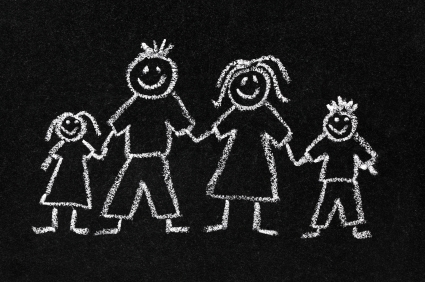
How "Family" Backfired at Penn State
How "Family" Backfired at Penn State
Posted On: Monday, November 5, 2012
 When leaders refer to their organizations as a “family,” it can be dangerous when they don’t also have a full understanding of the implications and expectations of that metaphor.
When leaders refer to their organizations as a “family,” it can be dangerous when they don’t also have a full understanding of the implications and expectations of that metaphor.
While presumably their reference is to a functional family, the question is… what kind of unremitting vigilance is required to spot and address the dysfunctional elements when they show up?
The “family” metaphor is complex as it applies to how organizations operate. Is the parent-child dynamic transcended? Is ego in check? Does everyone feel safe in raising problems? Are leaders seeing the reality of a situation in its totality, taking an accurate pulse? Or, are blinders interfering?
When problems surfaced at Penn State University in 1998 and 2002 regarding the Sandusky child sex abuse incidents, former president Graham Spanier indicated he was not aware that child sex abuse was involved; criminal charges filed against him last week (11/1/12) address allegations of perjury and child endangerment.
In an August 2012 interview Spanier defended his decision (while still president November 2011) to unilaterally support former athletic director Tim Curley and Gary Schultz, former vice president, when criminal charges were filed against them. (They were accused of perjury and a cover up.)
Spanier said he held a meeting of senior administrators and reminded them they had all worked with Schultz and Curley for years; that “honesty, integrity and always doing what was in the best interests of the university” was how everyone had agreed to operate. He added he’d defend any of them under those circumstances, as he was Curley and Schultz, if they had also been falsely accused.
Elaborating in the recent interview, Spanier said “…we’ve always operated as a family. Our personal and social and professional lives were all very intertwined. It’s all wrapped up together, and I would never have had a basis, nor do I now, for doubting them.”
At the end of the interview he reiterated: ” We always talked about the Penn State family, and that is how this place feels and how we operate. Everybody knows everybody. Everybody’s connected and everybody’s intertwined, and this is a trauma in so many ways and at so many levels.”
In late September 2012, Spanier gave a lengthy Nightline interview; he was repeatedly asked why he hadn’t asked more questions, gotten more involved, personally ensured that everything was done to investigate whether Sandusky was sexually abusing children. Spanier replied that he had insufficient information to know children were at risk.
Penn State remains under a microscope, with a great deal of input from others on ways to address what went wrong. It is up to them to understand fully how Sandusky, now a convicted pedophile, could operate for so long in the university family and what is needed to ensure their culture is never so vulnerable again.
It turned out that everybody didn’t know everybody. How some were connected didn’t result in Sandusky’s young campus visitors being safe.
Posts by Category
Archive
Most Recent
Gael’s coaching and consulting made me aware of three issues that were holding me back from personal and business growth: I reexamined my approach to problem solving, how to attract and develop peak performers in my organization in the right positions, and how to develop my leadership skills to a higher level…..”

[…] CIA Director David Petraeus (an affair with his biographer); former Penn State University President Graham Spanier (criminal charges filed); and Lance Armstrong (stripped of all seven Tour de France […]